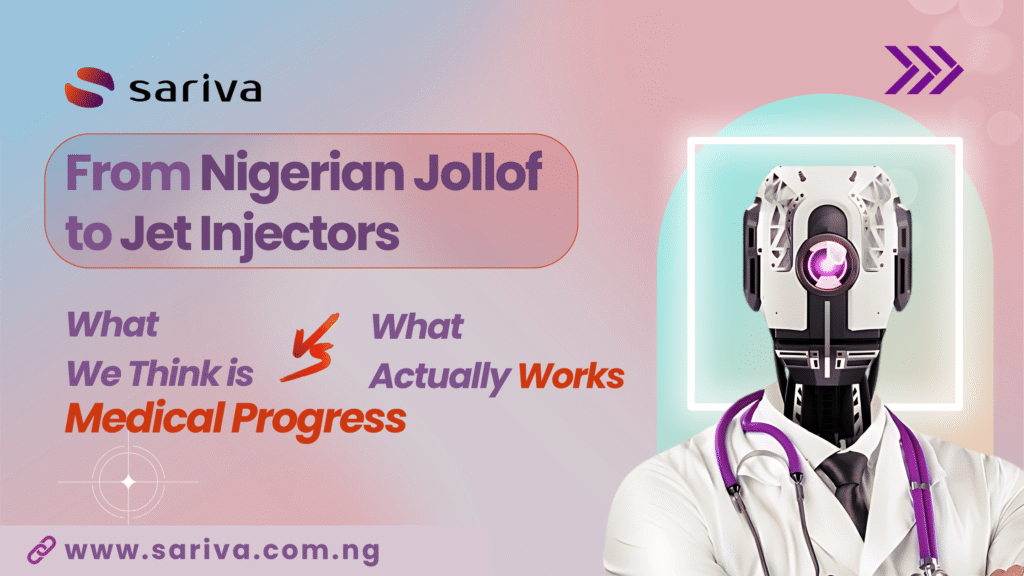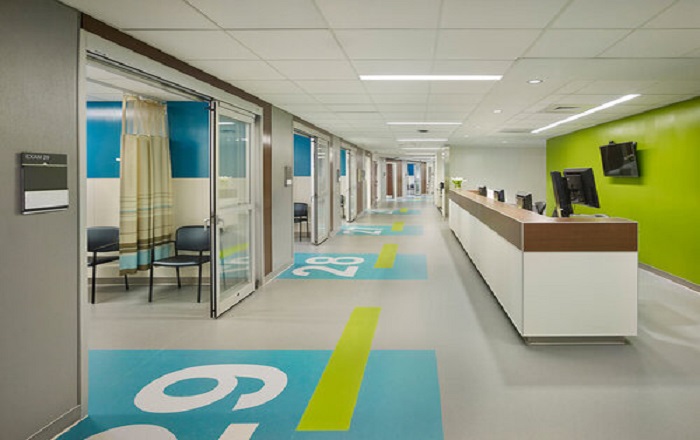The Allure of “New” in Nigerian Healthcare
We live in a nation where loud often passes for legitimate. It’s no surprise that in healthcare, too, we sometimes confuse “new” with “better” as medical progress.
Jollof rice tastes different in every home, but the essence stays the same: rice, a stew base, and spices. If someone served you raw tomatoes and a side of rice and said, “This is deconstructed Jollof,” would you clap for them?
That’s how healthcare can be. A lot of what we term “innovation” is a remix of old methods dressed in buzzwords.
Not All That Glitters Is Innovation
Jet injectors sound fancy. They deliver medication through the skin without needles, useful in mass vaccination campaigns. And for a time, they were said to be the invention that would replace needles.
Yet, the jet injectors also carry a high risk of cross-contamination and are dangerous if not used correctly. WHO has issued strong warnings against their widespread use.
Even with pushback, they still show up in procurement pitches because they look and sound high-tech.
The real medical progress? Somewhere in a remote village in Nigeria, a small clinic is using solar-powered fridges to keep vaccines viable, quietly reducing child mortality.
It’s not glamorous. But it works.
What Actually Moves the Needle
In Nigeria’s context, progress isn’t always about adopting what’s trending in other parts of the world. It’s about choosing what solves a real, local problem today, not what makes for a flashy presentation.
Let’s take a look at some real-world contrasts:
Shiny Innovations vs Effective Progress
- Imported telemedicine robots vs Low-bandwidth apps or WhatsApp triage by rural doctors.
- Unused AI diagnostics equipment vs Basic training for lab techs already on ground.
- A robotic surgery arm vs Pulse oximeters and BP monitors in every ward.
This doesn’t mean we reject innovation. We should absolutely welcome it but also interrogate it.
So, What’s the Test?
Ask these five questions before investing in any healthcare tech or idea:
- Does it solve a clear, present problem?
- Can the local staff operate and maintain it?
- Is it culturally and contextually relevant?
- Does it scale sustainably?
- Can it show actual impact or just a PDF brochure?
A new device without a local maintenance plan is just expensive décor.
What We’re Learning at Sariva
At Sariva Healthcare, we’ve learned that success isn’t about chasing the flashiest equipment. It’s about making sure every product works here. In Nigeria. For Nigerian clinicians and patients.
That’s why we don’t just supply medical devices, we help calibrate each request to the reality on ground. From advising on power compatibility to training needs and usage practicality, we work closely with our partners to select solutions that match their goals and our context.
Whether it’s hybrid solar-electric systems, affordable diagnostics, or designing multi-use hospital spaces, we focus on what works. We deliver real impact.
Let’s Stop Falling for the Fancy
True medical progress in Nigerian healthcare isn’t about having the most futuristic gadgets. It’s about ensuring a child can be safely delivered, a wound is properly cleaned, and a diagnosis is correctly made.
Just like Jollof, the recipe that works doesn’t need reinvention. And if you must remix it, do it like Nigerian Native rice; grounded in what works, with flavour that fits the setting.



